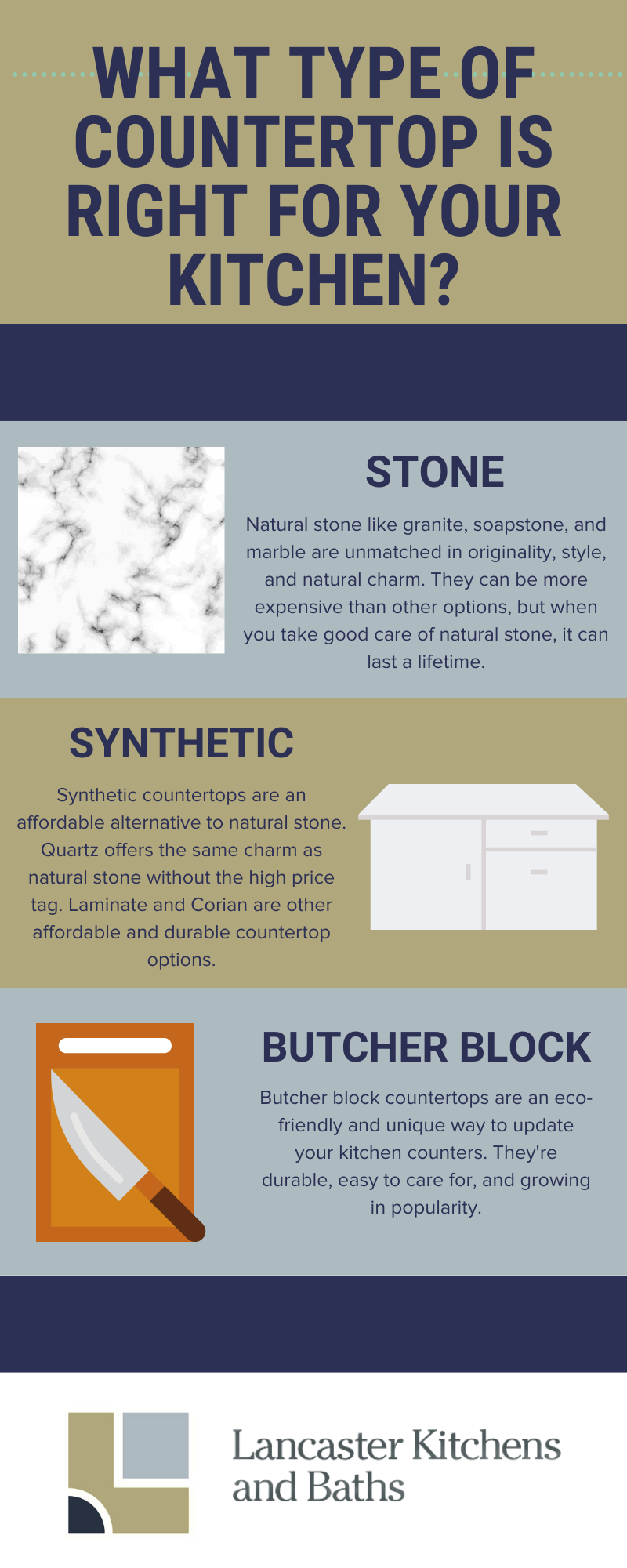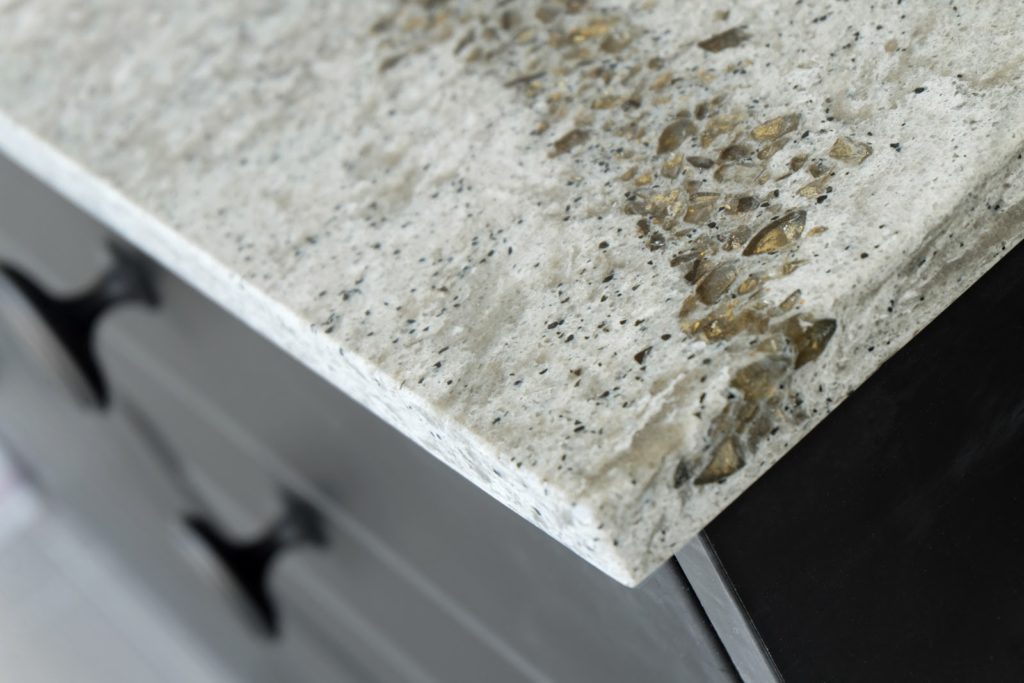Replacing dated countertops can be a relatively easy way to modernize your kitchen’s look, but deciding on materials can be challenging since options abound. Fortunately, Lancaster Kitchens and Baths can help with kitchen countertop remodels that blend seamlessly with existing cabinets and appliances, and our specialists can help you select the right materials for your lifestyle.

Stone Kitchen Countertops
Cut from blocks of naturally-occurring stone, granite, marble, and soapstone, these countertops offer excellent durability. However, they’re typically more expensive than other options. Granite countertops allow cutting in various edge patterns for easy customization and hold up great to heat while resisting scratches with aplomb. But, the natural materials mean you can’t customize the smoky gray to off-white color.
Likewise, marble options come in a broader range of colors, but they incur stains quite easily since they’re incredibly porous. If you want the look of marble at nearly half the cost, soapstone counters may fill the bill; however, they’re generally much softer than granite or marble and thus less durable. You can often get tiles made from granite, marble, and soapstone much cheaper than large blocks — making tiling a budget-friendly alternative to solid stone countertops.
Synthetic Kitchen Countertops
Synthetic kitchen countertops are made from engineered materials, and counters in this category include laminate, quartz, and Corian. These materials are usually much cheaper than stone, making them a great choice if you’re keeping a close watch on your remodeling spending. Laminate options are the most affordable and typically mimic the look of wood, but they don’t hold up nearly as well as they easily chip and scratch.
Quartz countertops are made from engineered stone and look like their more expensive counterparts, but they’re nonporous and thus don’t scratch or incur stains. On the downside, quartz doesn’t handle heat well and may warp. Corian counters are made from acrylic and polyester blends that come in various custom colors, but they scratch easier than stone and aren’t as heat resistant as other synthetics.
Butcher Block Countertops
Butcher block countertops add an organic feel to your space and offer a green way to update your kitchen’s look. Made from thick wood blocks that hold up well to time and add rustic appeal to your kitchen, butcher block countertops look great, but they’re a high-maintenance option that requires resealing every six months or so to prevent mold and mildew growth. On the upside, scratch repairs typically only require sanding and resealing.
No matter your budget or personal style, Lancaster Kitchens and Baths can help out immensely when it’s time to replace your old kitchen countertop. Call us today for more information about kitchen countertop installation.





